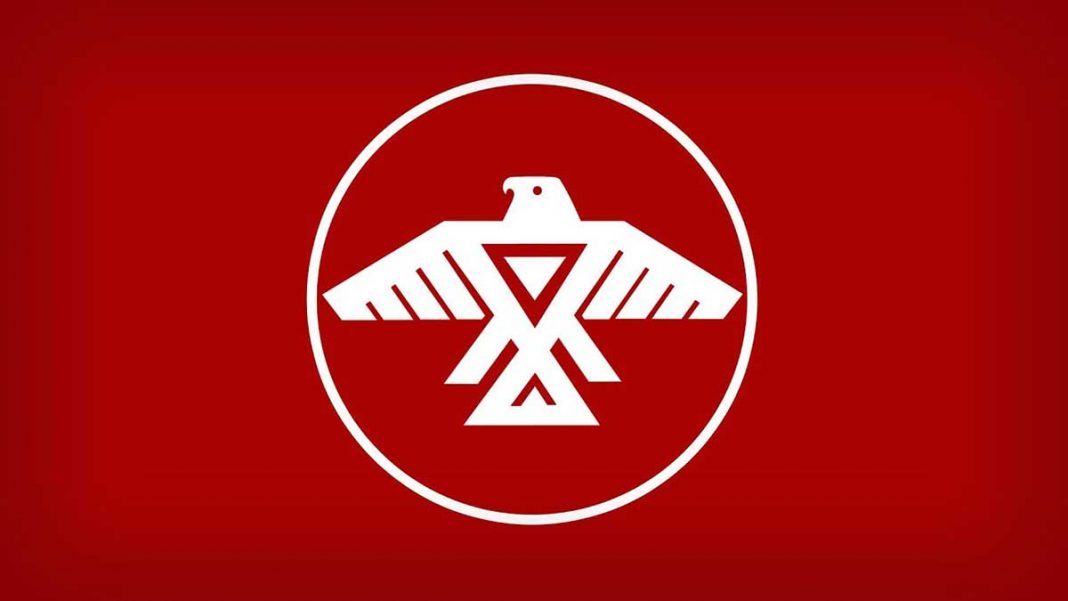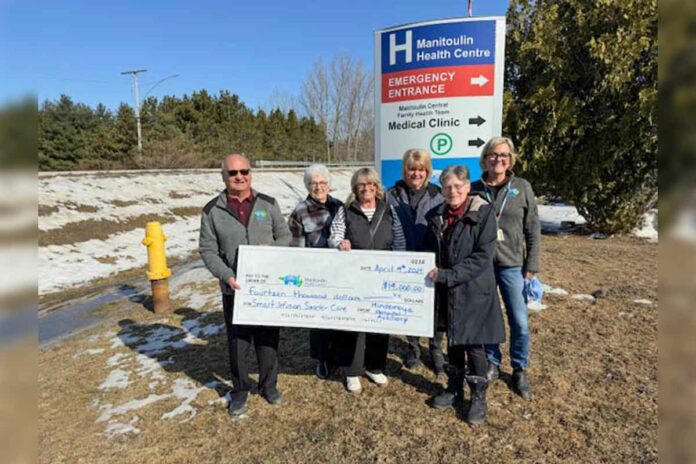SAULT STE MARIE—On March 25, the Anishinabek Nation’s Chiefs Symposium on Health Transformation drew together a diverse gathering of leaders, advocates, and citizens united by a singular cause: reimagining a health system that truly serves the Anishinabek Nation. Among the shared lesson and stories of struggle, one thing became abundantly clear—there is a determined drive for change.
Patrick Madahbee, Anishinabek Nation Commissioner on Governance, underscored the urgency of the issue: “There are so many issues right now that need collective strength. We can’t afford to waste time on this.”
With approximately 60 people in attendance and 15 joining virtually, the symposium offered more than just discourse; it was a call to action. The day began with powerful words from community leaders, including Mishomis Jack Trudeau of Serpent River First Nation and Nookomis Donna Debassige of Wiikwemkoong Unceded Territory, alongside Mishomis James Mishquart of Biinjitiwaabik Zaaging Anishinaabek.
Grand Council Chief Linda Debassige reflected on the pivotal contributions of Tom Bressette-baa and the critical need for unity as Anishinabek communities navigate the complexities of Health Transformation. Speaking candidly, she acknowledged the flawed system that has failed our people for far too long.
“We cannot inherit a broken car and expect to drive it down the road,” Chief Debassige stated. “We cannot simply sit back and say we’ll take on that responsibility in the same fashion it’s been delivered because we know that does not work. We know that our people have a difficult time accessing healthcare services.”
Her words were a challenge to the collective will of the assembly: Health Transformation is about more than patching up an existing system—it’s about building one that reflects Anishinabek values, respects traditional knowledge, and delivers real, tangible solutions. She went on to highlight the risks of navigating a system not designed by us, but emphasized that these risks, though daunting, should not be a deterrent. “The whole design of colonized systems is to divide and conquer,” Chief Debassige warned, pointing to the ongoing need for unity in the face of these challenges.
Deputy Grand Council Chief Chris Plain welcomed the attendees, and Lake Huron Regional Chief Scott McLeod urged leaders to actively engage in the upcoming elections, choosing wisely in the pursuit of meaningful change.
The first keynote address came from Doug Kelly, former chair of the BC First Nations Health Council, whose personal health struggles painted a vivid picture of the gaps in the current healthcare system. “You can’t call the health system in Canada a health system because it’s not,” Mr. Kelly remarked. “You have to be there, and you have to advocate. The abstinence model doesn’t work … We have to go to harm reduction. I know that because that’s where I was.”
Richard Jock, former CEO of the BC First Nations Health Council, followed with a discussion on lessons learned from the BC First Nations Health Authority (FNHA), where he shared insights on how community-led health programs can work, even when transitioning from a colonial system.
The day’s discussions emphasized a clear theme: the path to Health Transformation involves returning control of healthcare to the communities it serves. Monika Konrad of Nishnawbe Aski Nation, during a panel discussion, spoke to the frustrations of navigating a system that constantly shifts priorities. “Health transformation is about taking back control so that you’re not going to somebody begging for pennies to do what you know needs to be done,” Ms. Konrad said, echoing a sentiment shared by many.
Mr. Kelly and Mr. Jock also spoke about the importance of engaging communities early in the process, acknowledging the fears that arise with change and creating spaces where those fears could be addressed openly.
Later in the day, a session on health governance took place, with contributions from R. Martin Bayer, a lawyer and negotiator for the Anishinabek Nation Governance Agreement, and Tracey O’Donnell, alongside Patrick Madahbee. The panel explored the critical role of negotiation in shaping the future of health governance, emphasizing that chiefs and councils must provide clear mandates and direction for the process to succeed.
Health transformation, as outlined by those involved, is not merely about reforming existing structures or allocating more resources. It’s about creating a health system designed by and for the Anishinabek, integrating traditional knowledge, holistic healing practices, and culturally relevant services. This transformation promises to honour our values, strengthen our communities, and ensure that future generations will not inherit a broken system, but one that they can trust and rely upon.
As the symposium concluded, there was a renewed sense of purpose among those present. The road ahead will undoubtedly be fraught with challenges, but the collective commitment to health transformation is clear. It’s a process that demands collaboration, trust, and an unwavering commitment to ensuring the well-being of the Anishinabek Nation for the next seven generations.
The Anishinabek Nation’s journey toward health sovereignty continues, but as was evident in Sault Ste. Marie, the flame of self-determination burns brightly.






